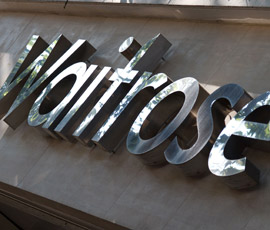Waitrose pilots test to prevent food fraud

Waitrose is piloting a new way of proving the UK-origin of foods to prevent a repeat of the recent horsemeat scandal.
Food Forensics uses a process known as “stable isotope ratio analysis” to accurately determine whether a product was sourced from within the UK or not.
The Norwich-based company studies the isotope ratios of five different elements – carbon, oxygen, hydrogen, nitrogen and sulphur – to identify the geographical source of a food product.
The technique has been likened to a fingerprint, because it can determine the country of origin, but potentially the local region where the sample was produced. It can be used on everything from fruit to meat and even alcohol.
The aim is to reduce the incidence of food fraud following the horsemeat scandal and protect genuine British growers and retailers.
Alison Johnson, director of Food Forensics, said: “Our aim is to protect the selling point of British farmers and growers.
“The UK is less than 60% self-sufficient for food and for some products less than 20%. For consumers who want to buy British, it’s important they can trust their suppliers.”
Alan Wilson, Waitrose’s technical manager for agronomy, said: “As a leading British supermarket, we use every means at our disposal to understand food authenticity.
“This not only helps build consumer confidence but also strengthens relationships with our British suppliers.”
